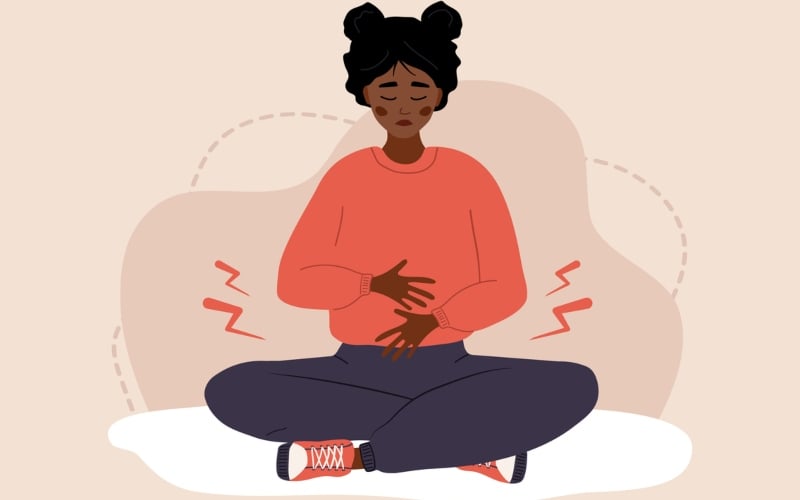—
Please Note: This is a paid article that is presented for informational purposes only and is not meant to diagnose or treat any illness. If you have any health concern, see a licensed healthcare professional in person. This article does not constitute an endorsement or approval of this product or any claim, statement or opinion used in promotion of this product.
You may have sensitive teeth if you’ve ever felt a shock of acute discomfort in your mouth after eating. Extreme temperatures in food, beverages, or the air can cause tooth sensitivity and cold and heat to start and cease abruptly. Tooth sensitivity is a common occurrence; however, some people’s teeth are more sensitive than others.
What’s the Deal With My Sensitive Teeth?
The enamel, cementum, and dentin are the three components of your mouth responsible for tooth sensitivity. The protective covering that protects the crown of your teeth from stains and injury is enamel. The cementum protects the roots of your teeth and gums in the same way as the enamel does. Dentin is a firm, nerve-connected tissue found under the cementum and enamel of your teeth. The nerves in your teeth and gums are more sensitive and painful when the dentin is exposed.
1. Use A Toothpaste With Potassium Nitrate To Brush.
A toothpaste with potassium nitrate is for any dental ailment, including the problem of sensitive teeth. A component called potassium nitrate is found in several kinds of toothpaste intended for sensitive teeth. By repressing the small channels that go through the dentin, potassium nitrate helps to reduce tooth sensitivity. Toothpaste also produces a barrier that protects the dental nerves within the tubules when used regularly.
2. Always Try To Brush Very Carefully And Softly.
Even though dental enamel is very strong, it is susceptible to erosion. Brushing your teeth with a hard-bristled toothbrush vigorously wears away the protective coating of your teeth. As a result, it’s recommended by dental professionals to brush daily using a toothbrush that has very soft bristles. Brushing for the recommended two minutes is recommended, but the power with which you brush your teeth and the type of toothbrush bristles you use might affect your dental sensitivity. More exposed dentin and increased nerve irritation can come from harder strokes and bristles.
Brushing should be avoided for roughly half an hour after eating acidic food or beverage, such as Cold drinks or any citrus fruit. For a few minutes after ingesting the chemical, the acidity might weaken the enamel.
3. Apply Dental Sealants In A Strategic And Proper Manner.
When it comes to sensitive tooth care, your dentist is extremely important. Sealants can always be used to save your teeth from decay and to reduce dental sensitivity. A resin coating is placed during the procedure to establish a protective barrier against chemicals that irritate sensitive teeth.
These impediments might endure for years. They can, however, be reapplied once they’ve worn off.
4. Eliminate High-Acid-Content Foods And Beverages From Your Diet.
Some meals and beverages are acidic to a greater extent than others. Grapefruit juice and red wine, for example, can erode the enamel of your teeth. Minerals inside the enamel are dissolved when it is subjected to acids. This disintegration can lead to cavities, but it can also lead to an increase in tooth sensitivity. The more acidic content or food your teeth are in contact with, the more enamel they lose.
5. At Night, Use A Mouth Cover or a guard.
People who have a habit of grinding their teeth at sleep are more likely to have sensitive teeth. Grinding teeth wear away the tooth enamel.
Teeth grinding occurs when you are asleep, you may not even be aware that you are doing so and causing harm. Using a mouth cover or guard every night might help protect your enamel from further harm.
6. Inquire About A Gum Graft With Your Dentist.
Gums might naturally retreat as we become older. Furthermore, when the gums recede, the cementum covering the teeth roots may begin to erode. Dental sensitivity is increased as a result of this. Your dentist may be able to help you with receding gums by performing a gum-grafting treatment to cover exposed tooth roots.
Conclusion
When you experience pain and discomfort in your teeth after eating or drinking something cold or hot, this is a sign of a cavity, which is not only your problem but the problem of the entire world’s population. Teeth sensitivity is a condition that never entirely goes away. It may come and disappear during life, but it just needs to be concerned for its teeth. Healthy teeth contribute to a long and happy life, as well as a variety of other benefits.
—
This content is brought to you by Kavita Paliwal
Shutterstock
The post 6 Tips for Dealing With Sensitive Teeth appeared first on The Good Men Project.
Original Article










